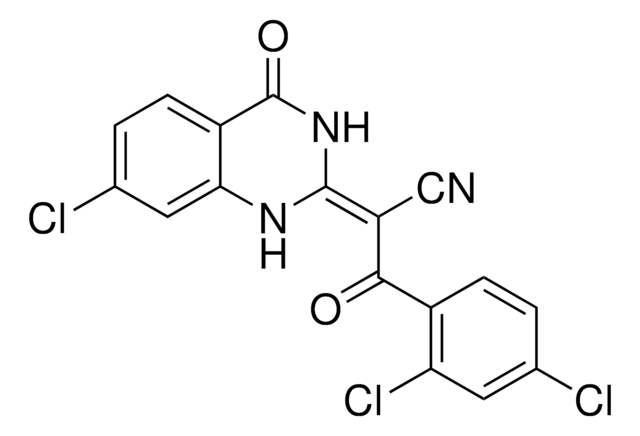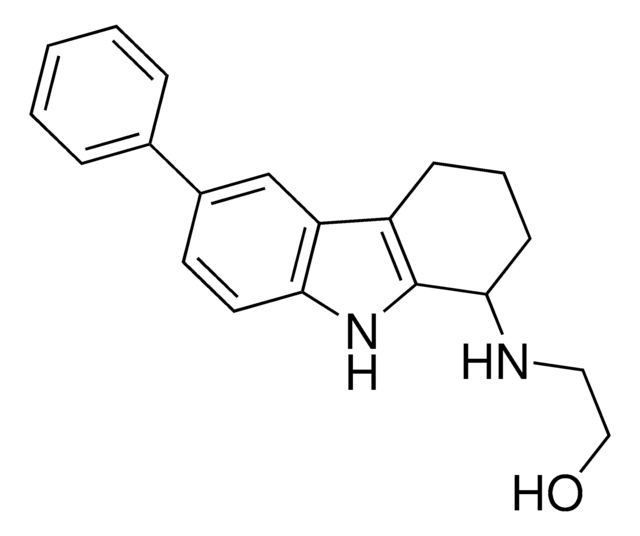250233
Cytochalasin B
from Helminthosporium dematioideum, ≥98% (HPLC), solid, cell-permeable fungal toxin, Calbiochem®
Synonym(s):
Cytochalasin B, Helminthosporium dematioideum
About This Item
Recommended Products
product name
Cytochalasin B, Helminthosporium dematioideum, Cell-permeable fungal toxin.
Quality Level
Assay
≥98% (HPLC)
form
solid
manufacturer/tradename
Calbiochem®
storage condition
OK to freeze
protect from light
color
white
solubility
methanol: 20 mg/mL
DMSO: 50 mg/mL
shipped in
ambient
storage temp.
−20°C
InChI
1S/C29H37NO5/c1-18-9-7-13-22(31)15-16-25(32)35-29-23(14-8-10-18)27(33)20(3)19(2)26(29)24(30-28(29)34)17-21-11-5-4-6-12-21/h4-6,8,11-12,14-16,18-19,22-24,26-27,31,33H,3,7,9-10,13,17H2,1-2H3,(H,30,34)/b14-8+,16-15+/t18-,19-,22-,23+,24+,26+,27-,29-/m1/s1
InChI key
GBOGMAARMMDZGR-TYHYBEHESA-N
General description
Biochem/physiol Actions
Blocking the formation of contractile microfilaments
Caution
Warning
Reconstitution
Other Notes
Theodoropoulos, P.A., et al. 1994. Biochem. Pharmacol. 47, 1875.
Benya, P.D., and Padilla, S.R. 1993. Exp. Cell Res. 204, 268.
Cairns, M.T., et al. 1991. J. Biol. Chem.266, 8176.
Nowak, D. 1990. Biomed. Biochim. Acta49, 353.
Wang, F., et al. 1990. Biochem. Biophys. Res. Commun.171, 543.
Edwards, S.W., and Lloyd, D. 1988. FEBS Lett.227, 39.
Legal Information
Signal Word
Danger
Hazard Statements
Precautionary Statements
Hazard Classifications
Acute Tox. 1 Inhalation - Acute Tox. 2 Dermal - Acute Tox. 2 Oral - Repr. 2
Storage Class Code
6.1A - Combustible acute toxic Cat. 1 and 2 / very toxic hazardous materials
WGK
WGK 3
Certificates of Analysis (COA)
Search for Certificates of Analysis (COA) by entering the products Lot/Batch Number. Lot and Batch Numbers can be found on a product’s label following the words ‘Lot’ or ‘Batch’.
Already Own This Product?
Find documentation for the products that you have recently purchased in the Document Library.
Customers Also Viewed
Our team of scientists has experience in all areas of research including Life Science, Material Science, Chemical Synthesis, Chromatography, Analytical and many others.
Contact Technical Service











